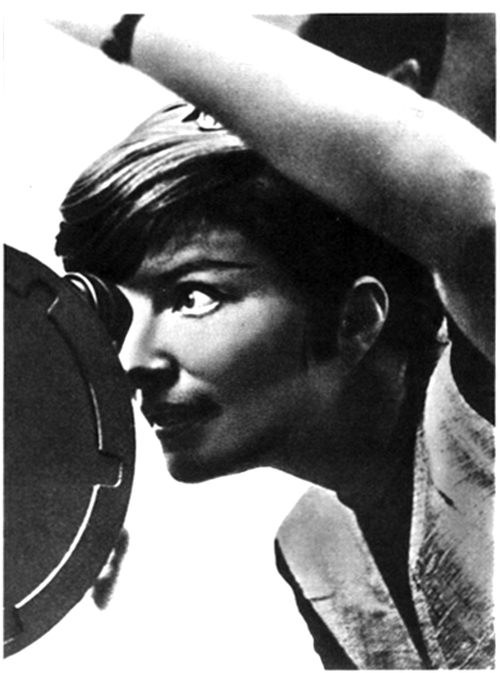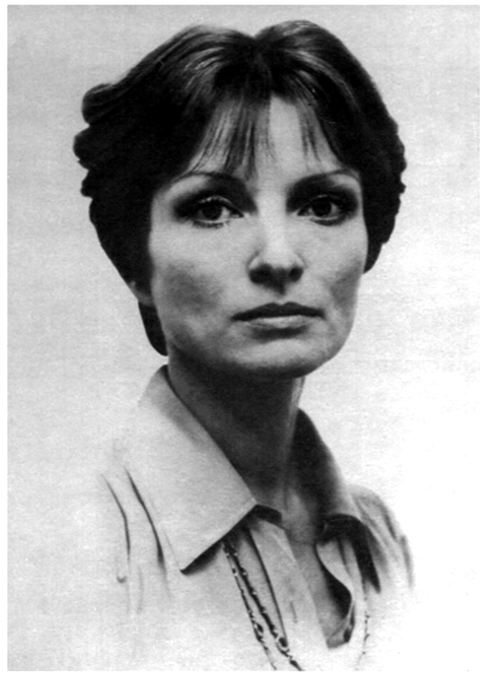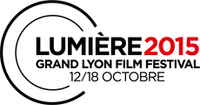Larissa Chepitko
The Angel of Soviet cinema
Posted ON 15.09.2015 at 10:22PM
TRAJECTORY - After Ida Lupino in 2014, the Lumière festival opens a new window of its programming to a director who has helped anchor the place of women in the cinema.
This year, as part of the Lumière series, "A permanent history of women filmmakers," the festival revisits the esthetic, deep, but regrettably forgotten work of Ukrainian filmmaker Larisa Shepitko. A woman whose brief career was cut short while in full swing, a director who marked the history of Soviet cinema.

Her films can be counted on the fingers of one hand, but their forthright strength, combined with the adamant intentions of their author, have allowed Shepitko to leave an indelible mark on the history of cinema in the former Soviet Union. At a time when few women were able to show the extent of their talent, the trajectory of Larisa Shepitko was a jarring exception. In a landscape of a regime dominated by rigor and censorship, the young Ukrainian pledged allegiance to her declared convictions from the outset.
Shepitko begins her film career at age 20, cloaked in the wardrobe of an actress at the Moscow Film Institute - the VGIK. After a few roles, she trades places with the other side, going behind the camera. She learns to direct, notably in the class of Georgian director Mikheil Chiaureli, but later finds a true guide in another member of its illustrious faculty, Ukrainian director Alexander Dovzhenko.
Dovzhenko becomes her mentor, and encourages Shepitko to defend her beliefs behind the camera - at all costs. She follows this advice, not without difficulties, developing and building on personally meaningful themes until her death… despite censorship. For this reason, the section The Homeland of Electricity of The Beginning of an Unknown Era (the medium-length film adapted from a Chekhov text) will only be released twenty years after its completion.
In 1963, inspired by a novel by famous author Chingiz Aitmatov Kazakh, she films her first film in Kyrgyzstan, Heat, at age 25. The film, which is also her graduation work, describes the tense atmosphere between a teenager and adults working in a steppe. "Finesse of black and white, photogenic cloudy skies and sunsets, brilliant camera movements" (1): the film excels in staging and foreshadows the filmmaker's penchant for nature and pure cinematographic images. A year later, the film picks up a Best Director award at the National Festival of the USSR.

However, it is with her fourth and last feature film, The Ascent (after Wings in 1966 and You and Me in 1971) that Shepitko gains international recognition. In 1977, The Ascent is crowned with the Golden Bear prize in Berlin. The award makes a mockery of the alleged reasons for censorship that led to threats of refusing a theatrical release. Shetpiko anchors the drama on "the spiritual immortality of the soul" in a German-occupied Belarus of 1942. The film tells the story of two captured Russian partisans who are forced to choose between collaboration and death.
"My film is a journey towards humanity, towards the future of the human being inside these two characters," said the director about the film. "The problem of the immortality of the soul was directly related to my life. It identifies itself in a curious way with my own person (...). Hence, we have spiritual immortality because in this materialistic, technical century, the question of the mind becomes paramount."
Larisa Shepitko has just risen to the top of her art when on July 2, 1979, at age 41, a car accident cuts her life short. It is her husband, Russian director Elem Klimov, who will complete her last project, the beautiful Farewell to Matyora (Proshchanie). The following year, Klimov will direct a deeply moving 19-minute biography of his wife, very simply entitled... Larisa.
B.P.
(1) Marcel Martin, Le cinéma soviétique, 1993, L’Age d’Homme.
---
Retrospective Larisa Shepitko - Rare films, works rarely seen in France - Prints from around the world
Heat (1h19, 1963) - Sun. 18 Oct. at 11:30am (Institut Lumière)
Wings (1h20, 1966) - Tue. 13 Oct. at 2:30pm (CNP Bellecour) and Thu. 15 Oct. at 2:30pm (Institut Lumière)
The Beginning of an Unknown Era (1h11, 1967) - Wed. 14 Oct. at 11:45am (Institut Lumière)
You and Me (1h33, 1971) - Tue. 12 Oct. at 10pm (Institut Lumière)
The Ascent (1h51, 1977) - Tue. 12 Oct. at 7:45pm (Institut Lumière), Sat. 17 Oct. at 4:45pm (Pathé Bellecour) and Sun. 18 Oct. at 5pm (Villa Lumière)

